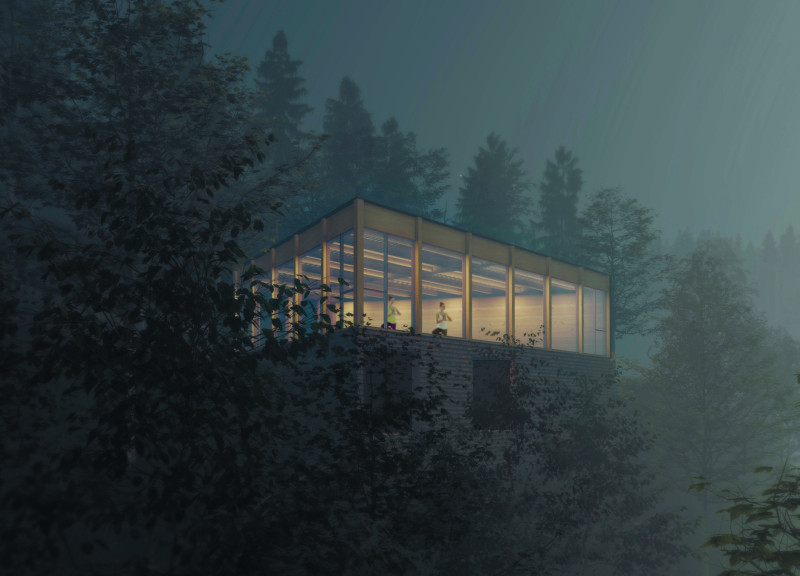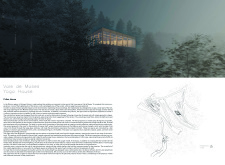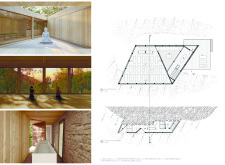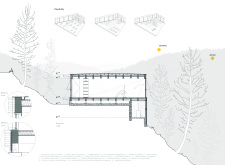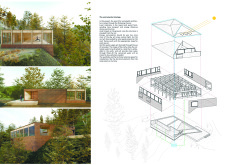5 key facts about this project
The Yoga House in Vila de Moses is situated in the calm Oleiros region of Portugal, designed as a space for yoga practitioners seeking a connection with nature. The design focuses on tranquility and mindfulness, creating a retreat that encourages individuals to step away from outside distractions. By integrating the natural landscape into the overall concept, the building serves as a place for self-reflection and personal growth.
Concept and Spatial Organization
The layout of the structure features a thoughtful arrangement that emphasizes a hierarchy of spaces. Upon arrival, visitors encounter a Zen garden, which serves as more than just an entrance; it fosters an atmosphere of peace and invites participants to engage in mindful traditions, such as drinking tea. Beyond this serene entry, the yoga room offers a versatile environment for various practices, allowing for both group activities and individual contemplation.
Materiality and Sustainability
While specific materials are not detailed, there is a clear emphasis on using local resources to minimize environmental impact. By elevating the building, the design reduces soil disturbance and improves drainage. Solar panels are integrated into the design to maximize energy efficiency, while a system for collecting rainwater helps manage water resources sustainably. These choices reflect a commitment to ecological responsibility and sustainability.
Light and Ventilation Strategies
Natural light is a key feature of the design, particularly in the yoga room where large glass windows provide expansive views of the surrounding landscape. This connection to the outdoors fosters a greater sense of presence during practice. Cross-ventilation is encouraged through careful window placement, allowing air to flow freely and ensuring comfort for users, especially in warmer weather.
The trapezoidal shape of the yoga room enhances the experience, creating a dynamic space for practice. Surrounding trees provide essential shade and help to filter sunlight, maintaining a comfortable atmosphere inside. Every aspect of the Yoga House is thoughtfully designed to support the well-being of its users, highlighting the relationship between architecture and nature.


